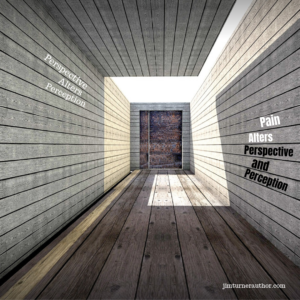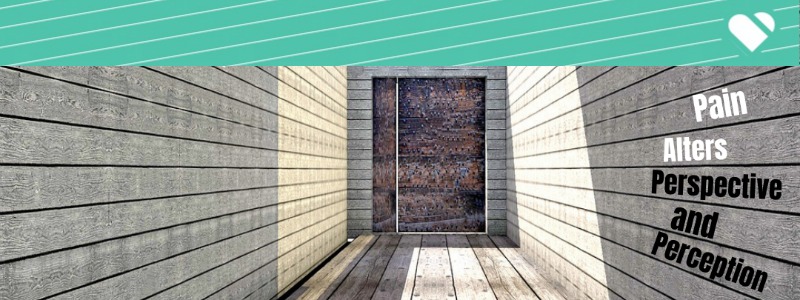 In the second ‘Connecting With Your Disconnected Dad’ post I cautioned those with disconnected dads that you had to be in a place personally to engage their dads. I gave this caution:
In the second ‘Connecting With Your Disconnected Dad’ post I cautioned those with disconnected dads that you had to be in a place personally to engage their dads. I gave this caution:
Speaking of you being up to it. Some will read this and just be reminded of the pain that surrounds their relationship with their dad. If that’s the case then you may need to go back to point #1 of this post. Don’t dive into this if your own pain needs to be addressed. If that’s the case, tune in to the next post in this series where we will help you deal with your own pain.
I promised you a little help dealing with your own pain. I speak to a lot of adult children of disconnected dads and realize there exists some pain that requires much more healing and much deeper treatment that we can cover in a short blog post. Depending on the depth and severity of your pain, you may want to seek more help, be it professional or other.
The following points will help you get started.
These points are intended to help you consider your pain from a different perspective. To analyze what might be causing (or have caused) your dad to act like he does (or did). I don’t mean to minimize your pain. Your pain is real. But the conclusions about how your dad caused the pain or contributed to it might be inaccurate.
For instance, you may have concluded that he knew or knows about your pain. He might not. Or, you may have concluded that he caused your pain intentionally. He might not have. Further, you might imagine that he has no pain himself. He only causes pain. That is most likely not true.
If your dad is a good man in most every way a man can be good; he’s honest, hardworking, faithful to your family, tries to do the right thing, and trusts God, then it’s likely he is unaware that he has caused your pain or that you even feel pain. This is usually true of a disconnected man. He is simply unaware. That doesn’t excuse him, it simply gives you a reason for his actions.
On the other hand…
There are men who are given over to evil. They hurt people intentionally or selfishly. Some, because they have so much pain living inside them that it has turned them bitter and hateful. Anyone who crosses them feels their wrath. Some abuse alcohol or drugs or sex or gambling or other addictions and thereby hurt those they love. If your dad fits in this category, you will need to be extraordinarily stable to help. Your spiritual and emotional vigor will have to be at its peak and able to be sustained. If not, you risk more damage to both you and him.
That being said let’s analyze the cause of your pain with some questions. Take these questions slowly and think through them thoroughly. Do your best to come to honest answers. Perhaps reach out to some others who know your dad well to help you. The most important thing here is to give your dad the benefit of the doubt. And not to assume the worst.
Question 1
- Intentionality – is he intentionally hurting you, or is he unaware? This is important. We often assign blame to people who hurt us because we assume they know they hurt us. Have you told him he’s hurt you, and how, or when? Have you discussed it?
One important point here – if you’ve only mentioned it once or twice but never had a full discussion about your pain, he may not get it. He might even continue the things that cause you pain – because he is most likely unaware. A mention here and there will not get through to him – he’s thick when it comes to emotional things. You may have to revisit, discuss, and explain to him exactly how you feel. He still may not get it because he’s probably never felt that way. But if he’s willing, keep trying. Eventually he will understand that he has caused you pain. He may not be able to empathize with your pain but he will, in his own way, be sorry that he did. Accept this for now.
On the contrary, he might not be ready to discuss your pain. He might excuse himself or just not deal with it. Or accuse you of being too sensitive. That’s tough. What it means is that he’s not ready to face his own responsibility. Give him time and ask God for a way in. And wait. But, again, don’t assume he’s intentionally causing you pain. Consider it a blind spot until proven otherwise.
Question 2
- Background – what pain and baggage is he dealing with? There’s an old truth, ‘hurt people hurt people’. When we suffer, we often get edgy and rude and short. We lash out at others because of the pain we feel. The greater and more prolonged the pain, the more likely we are to react to others and cause them pain. What pain is your dad carrying from his past, or present?
Men are experts at stuffing things. Especially disconnected men. I’ve talked to men who had no idea the pain they had stuffed deep inside until something sparked a memory or someone told them what happened to them. Things they hadn’t even remembered until they were told. I’ve seen men crumble and experience pain they had not felt since whatever happened to them happened. It’s tragic, but I see it regularly with the men (and some women) I speak with.
Knowing that your dad is in pain may help you understand why he caused yours. Again, he may not realize he has pain, it’s stuck so deep down in him. But if he’s disconnected, non-relational, and non-emotional on the surface, there’s probably a raging tide beneath. Realizing this is possible, you should be careful. Pry too deeply, too quickly, and that tide might break out on you.
Instead, take time to consider his pain. Think about it, pray about it. Feel his hurt along with yours and you will begin to be in a place where you can help. This is a spiritual and emotional battle. These kinds of battles take time to work out. You will have to be patient and you may have to suffer longer with your own pain. But if you will endure, you will find the Lord will give you what you need.
Consider This…
 I’m going to stop there for now. It’s a lot to consider. One last word of advice. There’s one critically important attitude to have when approaching someone who has hurt you. The challenge is that it’s the hardest attitude to come to when we are hurt. But here it is, the attitude of forgiveness. Perhaps I should say, the determination to forgive.
I’m going to stop there for now. It’s a lot to consider. One last word of advice. There’s one critically important attitude to have when approaching someone who has hurt you. The challenge is that it’s the hardest attitude to come to when we are hurt. But here it is, the attitude of forgiveness. Perhaps I should say, the determination to forgive.
This attitude will die if you demand the person ask for forgiveness. It will die if you rehearse your pain and offense. It will die if you nurse your anger and blame. But if you can forgive, truly forgive and master the humility of forgiveness, you will more quickly get through and past your pain.
The words of Jesus
“Judge not, and you will not be judged; condemn not, and you will not be condemned; forgive, and you will be forgiven; give, and it will be given to you. Good measure, pressed down, shaken together, running over, will be put into your lap. For with the measure you use it will be measured back to you.” Luke 6:37-38
Lastly, if you can’t do any of the above – cry out to God and tell Him. He will hear. He will help. Let Him carry your pain. Let Him heal you. If we can help you please don’t hesitate to connect with us. We will do whatever we can to help you!
Did this blog help ? Make sure to sign up for our monthly newsletter and stay connected in the New Year!

